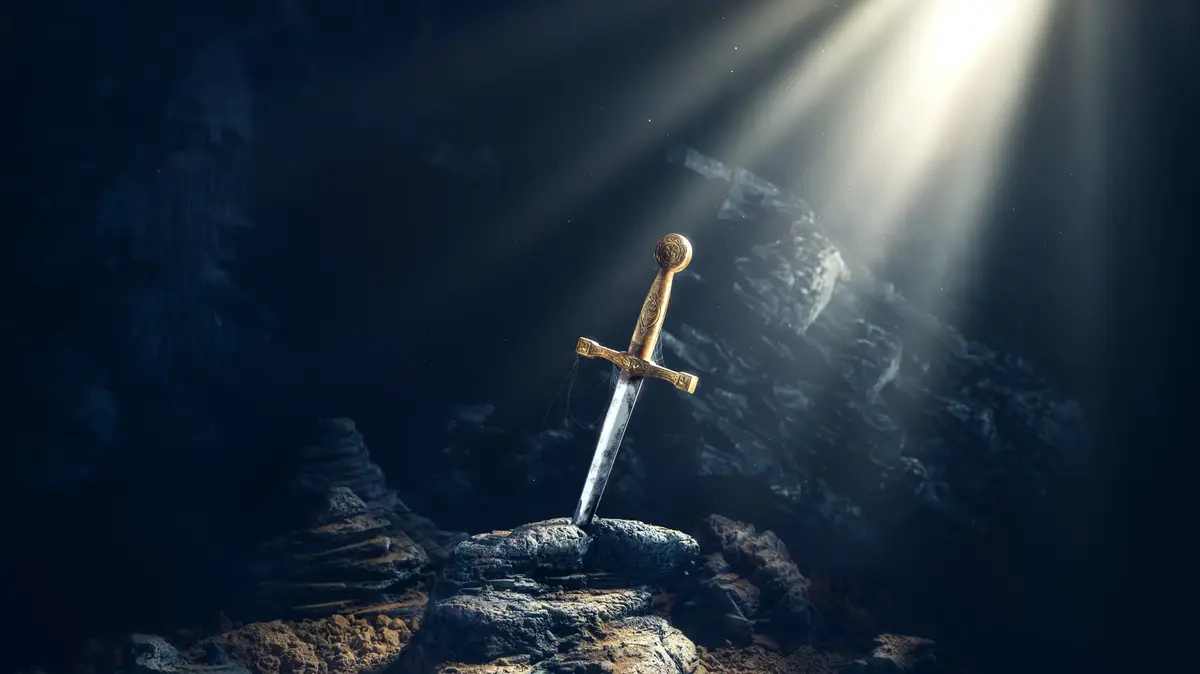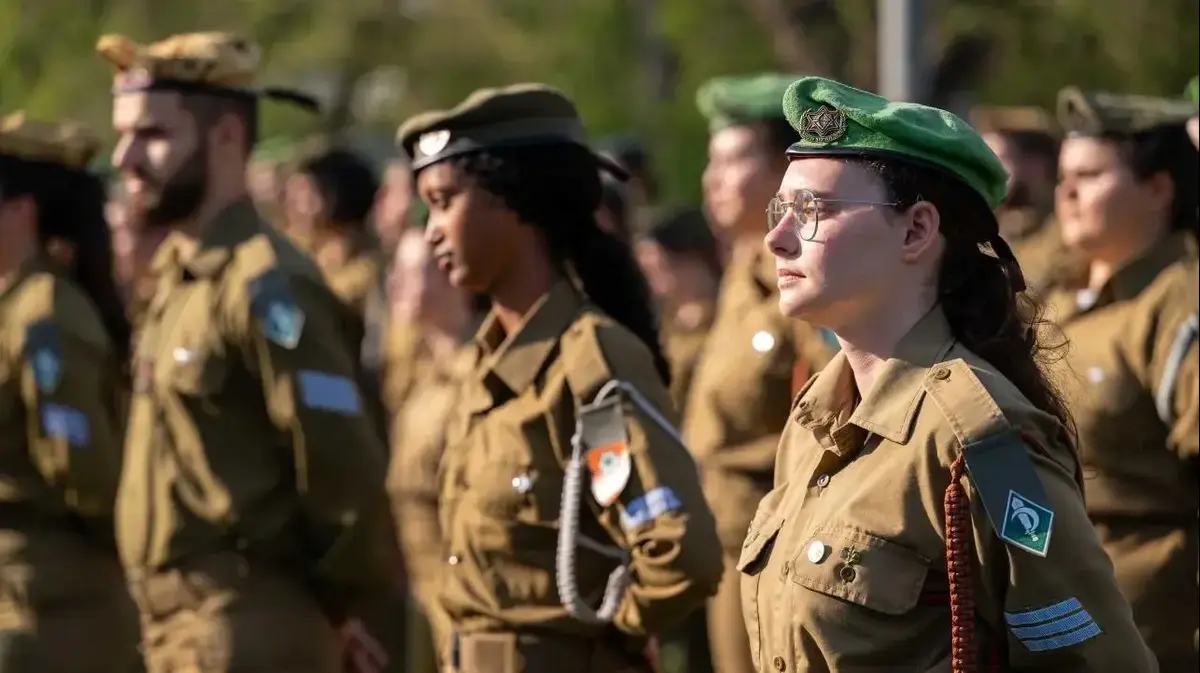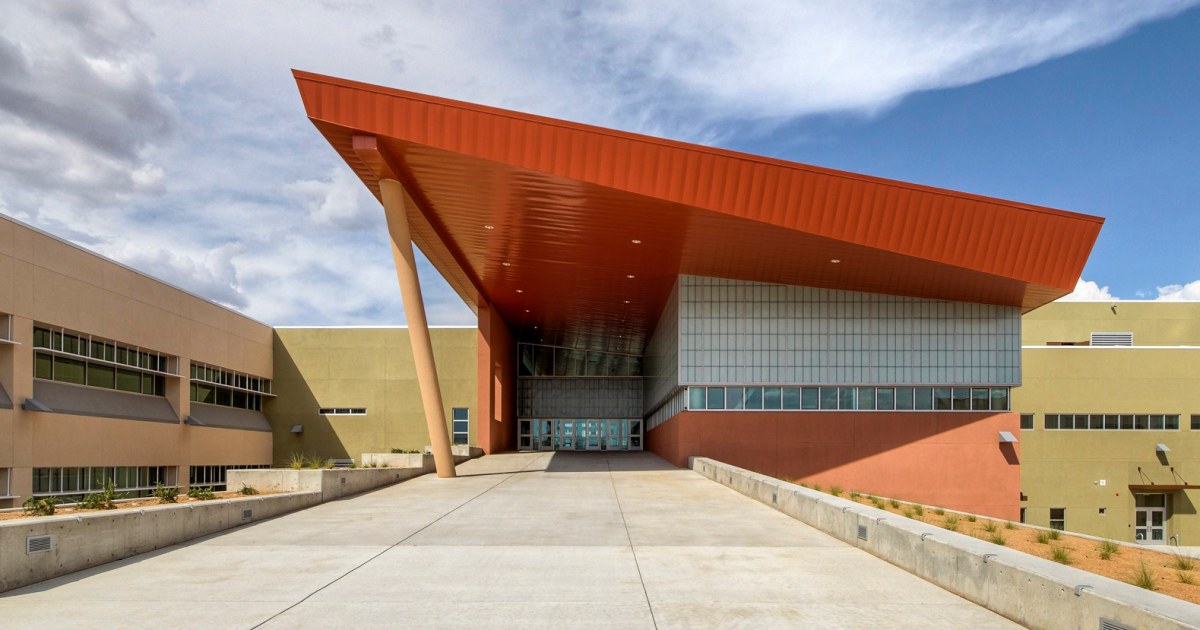The sword of Simón Bolívar exhibited this Sunday in Bogotá. JUAN BARRETO (AFP)
You have to sternly ignore the history of Colombia –at least deny this war of wars– to be blind and immune to the beauty of this Sunday's presidential inauguration.
We must ignore the hunger, the grotesque inequality that should have been our great shame from the very beginning and the violence that has brought the effort to build a nation, with blood and fire, despite the diversity and despite the facts, to feel foreign to that country of so many races and so many courages that the change of government has been taken as a change of luck.
You have to be made of tin so as not to shudder while Senator Pizarro, the daughter of that revolutionary assassinated after having made peace, hangs the tricolor sash on President Petro between joy and mourning.
You must have arrived late to the Colombian drama,
Why does it make sense that that sword is there, like a myth on the stage of the possession, guarded by a couple of soldiers of our independence: because the ill-fated hero left it to the reconciliation of the country;
because the M-19 – that noisy and irreverent guerrilla group, born in the stolen elections of 1970, to which the new president once belonged – began its revolutionary ballad by stealing it from the national army;
because then it went from glove to glove, from the poet León de Greiff to the poet Luis Vidales, from the hooded commanders to the tragic figures of a left resigned to martyrdom, until the peace pacts of the late eighties convinced that guerrilla to that the time had finally come to return it: Navarro, the leader who collected Pizarro's flags,
Bolívar's sword must be there, even if the outgoing government refuses to lend it, even if Petro is forced to ask for it a minute after being called "president", even if each Colombian takes the symbol in his own way, because they are fulfilling Thirty years since that peace that was given to the premonitory Constitution of 1991: because this presidency can be the ultimate proof that we have not been a country in vain.
You have to be immersed in the logic of supremacy to feel threatened by that twenty-one-page speech, a swing from platitudes to findings, which the new president is reading under a sun that knows when to come out.
You have to live outside, in the first world of Colombia, to look out of the corner of your eye at the just decalogue –peace, care, equality, dialogue, listening, defense, integrity, environmentalism, production, law– that is being proposed in the stone plaza that has seen everything.
This was not going to happen.
When one was a child here, in the land of "he put a bomb on a plane", "they killed him for scoring an own goal" and "they dressed up the corpse of a guerrilla fighter to win a medal", the news soon reached him that he had been born and he lived in a purgatory with no way out: “This is not serious”, “this is unfeasible”, he said to himself.
Happiness was found on tiptoe and behind closed doors.
He imagined, without losing sight of how unlikely it might be, a presidential speech that would tell the truth: this.
We have soccer players.
We have cyclists.
And we have cafeteria experts, of Olympic stature, in fixing the country.
Yes, we have decreed in turns, in the corner stores, what needs to be done: not all of us have fantasized about the same solutions, not even more, but many of us have imagined – as Petro's speech imagines – chimerical governments that recognize the crimes of State, that they not persecute anyone, that they bow to the freedom of the press, that they take to heart the vindication of our nature from the seas to the jungles, that they shout from the rooftops that the war on drugs is a failure, that they promise security measured in lives saved, that they are clear that it is time to move from charity to solidarity, that they refuse to serve vicious circles, that they dare, rather,
What needs to be done: what Petro is saying, I believe, this and this and this more, but hopefully it will be done, hopefully it will happen.
Maybe yes.
Why not if he no longer looks on guard.
He has already stopped behaving like an activist who does not have time to understand that doing politics is adding wills, dialogue.
His face is tempered by the presidency.
His voice breaks because this possession of times of mourning has a lot of requiem: "Peace is the meaning of my life," he says.
And you have to be one of the bad guys to despise the emotion with which he bids farewell to the crowds in the plaza, to repudiate the conscience with which he marches behind the urn of Bolívar's sword, to reject the naturalness with which he assumes the military honors and civilization with which he bids farewell at the entrance to the Casa de Nariño of the president who is leaving.
It would be absurd to deny, because it is true, that four years ago the inauguration was a gale full of diatribes against the outgoing government.
Today its a sunny day.
Nobody talks about them but about us.
And the key word is "hopefully".
Subscribe here
to the EL PAÍS newsletter on Colombia and receive all the key information on the country's current affairs.








